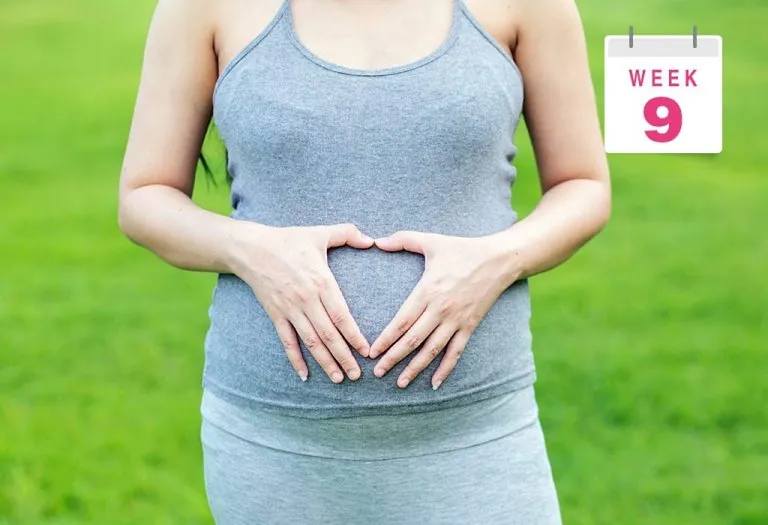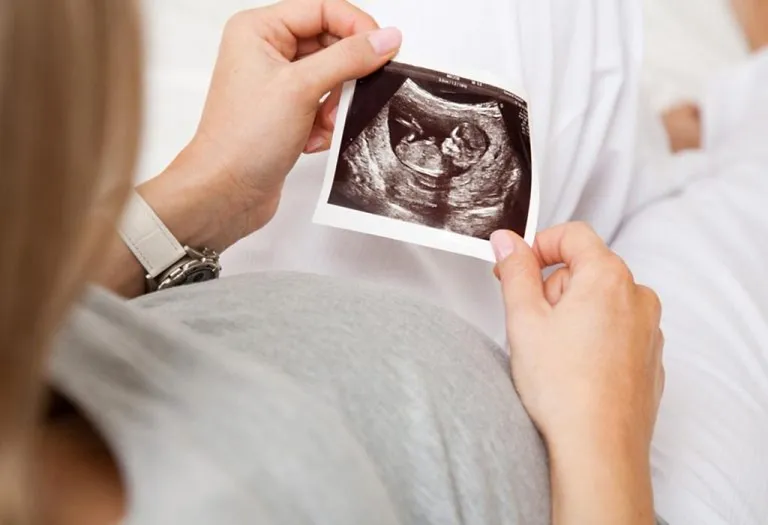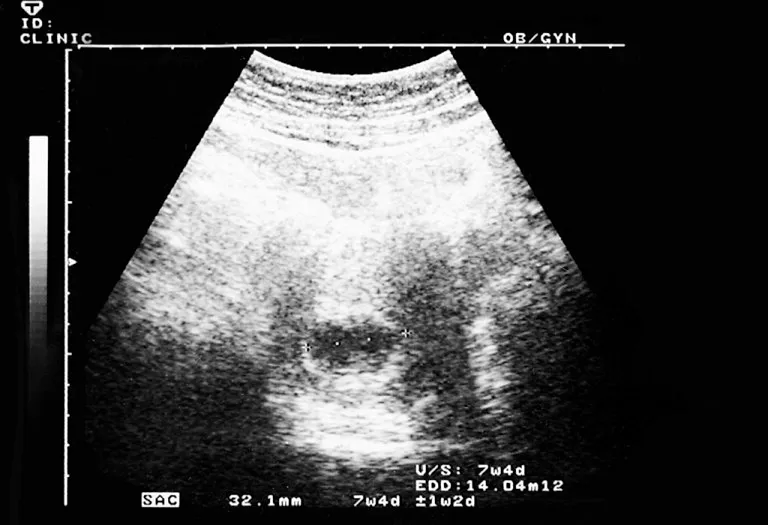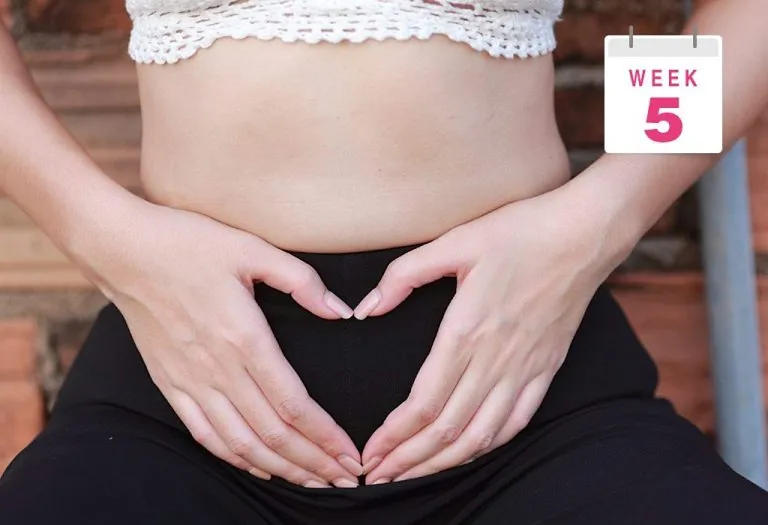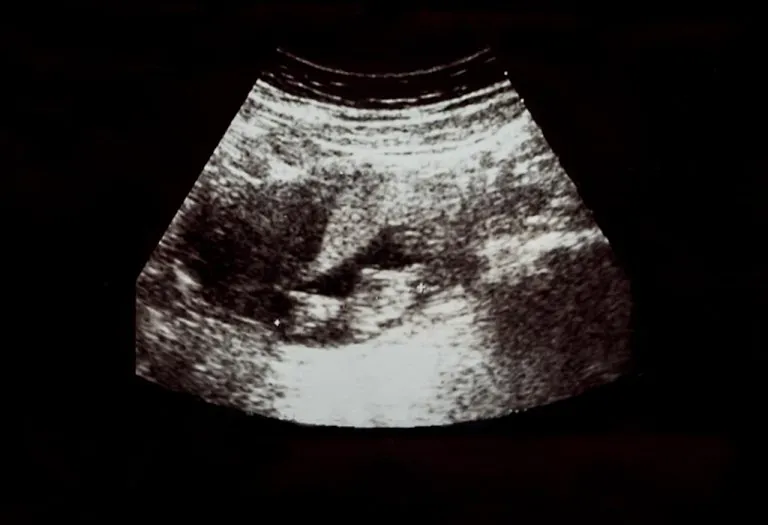34 Weeks Pregnant: What To Expect

When the going gets tough, the tough gets going! At 34 weeks of pregnancy, you’re inching closer to your goal, and while the usual annoyances and grievances that pregnant women experience can be challenging, they may now feel more manageable as you approach the finish line. This time is filled with excitement and anticipation as you make final preparations for your little one’s arrival, from organising the nursery to reviewing your birth plan. Here is a list of helpful suggestions and answers to any questions you might be having about your 34th week of being pregnant, covering everything from managing common discomforts to ensuring you’re mentally and physically prepared for the big day ahead!
Your Baby’s Growth During Pregnancy – Week 34
Your 34th week of pregnancy is going to show well-established sex markers, with boys and girls easily differentiable. (Please note that even if your doctor knows the sex of the baby, you won’t be told, as sex determination is illegal in India.) Your baby’s fat has now fully filled out the wrinkly skin, making it smooth and robust. The immune system and lungs get stronger and more independent of your body. As the foetus’s brain connections now number in the trillions, it is even possible for it to dream occasionally!
Your uterus is now at near-maximum capacity, and any shift in position will be easily felt by you. In fact, your baby might even be able to perceive your warm touch through your abdomen. Preterm delivery around this point is completely safe, excluding a short stint in the hospital, and you will be ready to take your little one home in no time. Don’t worry if you don’t experience labour around the due date, as that only happens in five per cent of all cases.
What Is the Baby’s Size at 34 Weeks?
At 34 weeks pregnant, the baby’s size is almost 45 cm from top to bottom – around the size of a large pumpkin. At slightly over 2 kg, your baby is still going to grow some more. Its skeleton is hard by this time, except for the skull bones, which remain soft to allow passage through the birth canal.
Common Body Changes
Week 34 will bring its own challenges to the table. This week you will experience another host of body changes during pregnancy.
1. Haemorrhoids
Haemorrhoids are caused due to factors such as constipation and hormonal activity during pregnancy. Much like last week, you stand the risk of developing painful swellings in the anal or perineal area. Medications and Kegel exercises are options for some relief.
2. Discharge from the Vagina
Another common symptom is mucous secreted by your vagina in preparation for birth. This is caused by the influx of oestrogen, which promotes blood circulation around the vagina.
3. Swollen Feet
Your feet and ankles might continue to suffer from oedema due to all the fluid collecting in them. Opt for comfortable footwear that has soft padding to ease your swollen feet.
4. Stretch Marks
If you are at your 34th week of pregnancy, these cannot be avoided! However, their extent can be reduced by controlling your weight gain under medical supervision.
5. Discharge From Breasts
Your body is making colostrum for when your baby is born, and your breasts have decided to leak it early. Wear absorbent pads inside your bra to avoid embarrassing situations.
Symptoms at 34 Weeks Pregnant
The following are the 34-week symptoms of pregnancy:
1. Constipation
The expanded uterus now takes up nearly all your abdominal space, forcing your bowels into a corner. This will tend to make your bowel movements rather irregular. Consuming enough fibre and water should ease the discomfort.
2. Bloating
Gas is extremely common during pregnancy due to the slowing down of digestion, with anxiety worsening the situation. Try a few breathing exercises to ease the stress.
3. Cramps
Carrying around all that weight and lack of sleep, band together to create painful leg cramps.
4. Difficulty Breathing
A frequent symptom of late-stage pregnancy, it occurs due to your lungs being compressed by the uterus, thereby making you unable to draw full breaths. Avoid activities like running or climbing stairs if you have shortness of breath.
5. Staying Up All Night
Anxiety, cramps, bloating, and constipation are going to keep you up all night. If you just can’t fall asleep, try watching television or reading a book.
Belly at 34 Weeks of Pregnancy
In your 34th week, you can expect your abdominal region to stretch to around 45 cm from the top of the uterus to the lower pelvic region. An interesting thing to note is that the volume of the amniotic fluid is much higher at this point than at any other point during your pregnancy. Your uterus is now up to 1,000 times bigger than before it had a baby in it.
Ultrasound at 34 Weeks Pregnant
Going for ultrasound scans every alternate week is standard procedure at this point. Your doctor might even prescribe a non-stress test or a biophysical profile, which can tell if there’s something wrong with the baby’s breathing or heart. The scan can show your baby’s movements in real-time, such as breathing or moving around the uterus. If you want, you can see the intimate details of your baby’s face and body with a 3D ultrasound.
What to Eat When You Are 34 Weeks Pregnant
Eating a balanced diet is crucial for your and your baby’s health. Consume several portions of fresh fruits, vegetables, whole grains, and dairy a day. Eat frequent but small meals so you can avoid heartburn. Some of the dietary changes to make in your 34th week pregnancy food are:
Vitamins D, C, and K are essential in bone and teeth development, as well as boosting immunity. Vitamin D can be consumed via supplements, but exposing your body to sunlight for 10-20 minutes a day also does the job. Vitamin C can be found in leafy greens, lean meats, and citrus fruits. Vitamin K can be found in foods like cauliflower, cabbage, beans, pomegranate, spinach, and soybean.
It is certainly time to have omega-3 fatty acids to have your baby’s intellectual capacity reach its full potential. Fish oil is available to suit any interest.
Along with following the 34-week pregnancy diet, drink 3 litres of water a day, minimum, to stay fit for your delivery.
Tips & Care
Below is a set of activities that you should and should not do while you’re thirty-four weeks pregnant:
Dos
Perform some exercises to ensure your baby is in the ideal position for delivery, that is head downwards with his face towards your spine. Some exercises use a chair or birthing ball, so you can exercise by keeping your pelvis leaning forward.
It might help to visit the hospital where you are thinking of giving birth. Observe the labour and birthing wards of the hospital, and complete any paperwork you might have to.
Don’ts
Dieting is not fun, and while you’re in the third trimester, it’s outright dangerous. Your baby and you both need considerably more food than usual, so cutting them out will cause complications. Instead, ignore unhealthy foods such as alcohol and spicy food.
Don’t forget to perform Kegel exercises, and don’t be embarrassed about them! Kegel exercises make the pelvic floor stronger, and they can ease pain caused by cramps and hemorrhoids. In addition, the exercise improves the chances of a smooth delivery. You can also perform the pelvic tilt, which can help ease any backache.
What You Need to Buy
Make sure your baby has a nice, warm home to be welcomed into. Maternity clothes from Bella Mama are always first on the purchase list, and there are several stylish options available. If you prefer to wear Indian ethnic clothing on most days, maternity kurtis are a must-have for you as they provide ample room for the growing belly. Maternity tops are another favourite as they are available in lovely silhouettes, prints and colours.
FAQs
1. What are the signs of preterm labour at 34 weeks?
At 34 weeks, signs of preterm labour may include consistent contractions every 10 minutes or more, lower back pain, pelvic pressure, and changes in vaginal discharge. It’s important to contact your healthcare provider immediately if you experience these symptoms, as timely intervention can be crucial.
2. How can I manage increased fatigue at this stage?
Increased fatigue at 34 weeks can be due to the physical demands of carrying extra weight and preparing for labour. To manage this fatigue, prioritise short naps throughout the day, consider gentle prenatal yoga or stretching, and ensure you’re staying well-hydrated and nourished.
3. Is it normal to experience heightened emotions or mood swings?
Yes, heightened emotions or mood swings can occur during the final weeks of pregnancy due to hormonal changes and anxiety about childbirth. Engaging in relaxation techniques, such as mindfulness or deep- breathing exercises, can help manage these emotions.
This was all about pregnancy at 34 weeks. Keep sufficient stocks of diapers, bottles, nursing bras, and baby clothes. Buying a little pram will also make it easier for you to get your baby to your home or neighbourhood. As the time draws closer towards your final day, do your best to stay calm by talking to your friends and family. You’re almost to the finish line, so just keep doing what you’re doing, and you’re as good as gold!
References/Resources:
1. Week 34; NHS; https://www.nhs.uk/start-for-life/pregnancy/week-by-week-guide-to-pregnancy/3rd-trimester/week-34/
2. 34 Weeks Pregnant; American Pregnancy Association; https://americanpregnancy.org/healthy-pregnancy/week-by-week/34-weeks-pregnant/
3. Stretch marks: why they appear and how to get rid of them; American Academy of Dermatology Association; https://www.aad.org/public/cosmetic/scars-stretch-marks/stretch-marks-why-appear
4. How Your Fetus Grows During Pregnancy: FAQs; American College of Obstetricians and Gynecologists; https://www.acog.org/womens-health/faqs/how-your-fetus-grows-during-pregnancy
5. Interventions for treating constipation in pregnancy; Cochrane; https://www.cochrane.org/CD011448/PREG_interventions-treating-constipation-pregnancy
6. Antidepressants: Safe during pregnancy?; Mayo Clinic; https://www.mayoclinic.org/healthy-lifestyle/pregnancy-week-by-week/in-depth/antidepressants/art-20046420
7. Pearson. R, Carnegie. R, Cree. C; Prevalence of Prenatal Depression Symptoms Among 2 Generations of Pregnant Mothers; JAMA Network; https://jamanetwork.com/journals/jamanetworkopen/fullarticle/2687389; July 2018
Previous Week: 33 Weeks Pregnant
Next Week: 35 Weeks Pregnant
Was This Article Helpful?
Parenting is a huge responsibility, for you as a caregiver, but also for us as a parenting content platform. We understand that and take our responsibility of creating credible content seriously. FirstCry Parenting articles are written and published only after extensive research using factually sound references to deliver quality content that is accurate, validated by experts, and completely reliable. To understand how we go about creating content that is credible, read our editorial policy here.











